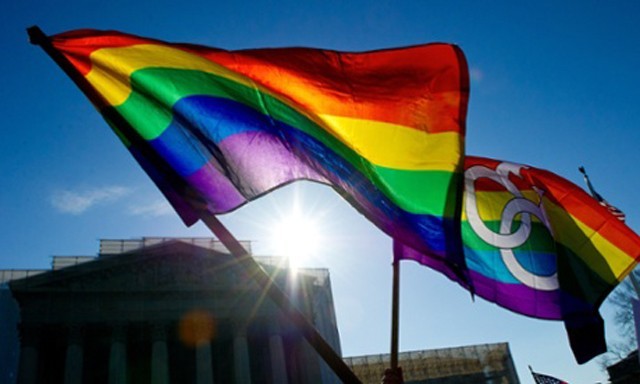‘Incremental’ is the marriage equality buzzword to look out for in the next three years. Part of this evolution could involve a debate about civil unions, but it isn’t enough
Last week was a bittersweet one for gay Australians. They heard Kevin Rudd fiercely advocate for same-sex marriage only to see him marched out of office five days later.
Now comes the inevitable – and farcical – attempts by “pro-family” groups to correlate the ALP’s electoral defeat with Rudd’s gay marriage push, and demand the issue be left in the political wilderness.
They’re likely to get their wish in the federal parliament at least, where prime minister elect Tony Abbott has raised doubts as to whether it will even come up in his first term.
An Abbott government appears unlikely to have much of an impact on the lives of gay Australians.
You won’t see the unprecedented rollback of gay rights that Queensland’s Newman government curiously prioritised in its first 100 days, but you certainly won’t see Abbott leading a bi-partisan push for marriage reform like his conservative British counterpart David Cameron.
Those looking for progress should instead turn their attention to the legislative assemblies of NSW and the ACT. It’s here that the battle for equality will be staged next.
The highly speculative arena of state-based marriage reform – thought possible only because of former prime minister John Howard’s tinkering with the Marriage Act in 2004 – may well lead to a high court showdown similar to the recent US supreme court case that pitted state rights against the federal Defense of Marriage Act (DOMA).
The federal government would only be back in the game if the prime minister sought to overrule an ACT same-sex marriage law in similar fashion to Howard’s dismantling of its civil union scheme in 2006.
It seems unlikely. Howard’s protégé would have a much tougher time of it thanks to the Greens’ overhaul of territory rights, which require both houses of parliament to approve any interference with territory laws.
On the national stage, the gay marriage buzzword to look out for in the next three years will be “incrementalism”.
A staple of the conservative lexicon, it’s also a word interestingly invoked by Abbott’s wife, Margie, in an appearance on Channel Nine’s Today Show last Thursday. “It’s an evolving thing, it’s incremental. And I think change should be an incremental thing,” she said when asked about same-sex marriage.
”Incremental” is a word that has been absent from discussion on marriage reform since much of the West abandoned redundant civil union schemes in favour of true equality.
But civil unions may be an attractive compromise for Abbott, should he face a hodge-podge of state-based marriage laws and an impending high court case.
Liberal MP – and sympathetic ear – Warren Entsch has long advocated a civil unions compromise.
He believes his success in lobbying Coalition colleagues to support removal of gay discrimination has been due to separating marriage from other issues.
“I said I wouldn’t use my support for change as a Trojan Horse for marriage and it was because I made that commitment that the first person who stood up in the party room to support me was Barnaby Joyce,” Entsch told me in 2011.
His offer to introduce a civil union bill has long been rebuffed by lobbying groups such as Australian Marriage Equality, but one imagines Entsch and many others in the Coalition would rally behind such a compromise should Abbott present it.
Civil unions would be seen as yet another defeat for gay marriage advocates.
It’s the type of incremental change that would have been welcome in the mid-2000s, when the United Kingdom and New Zealand were doing the same. With those countries now well beyond that reform, a second-tier relationship registration scheme would instead appear as legislating “separate but equal” status.
If gay people want real change in the next three years, they’re going to have to dump the rainbow chalk and start campaigning with more than an arsenal of pop-up crossings.
They’ll need to lobby MPs of all political persuasions to their cause as effectively as the wider Australian public appear to have been.
They’ll also need new champions to fill the void left by people like Kevin Rudd and Australian Marriage Equality’s Alex Greenwich, whose oratory skills are now confined to the NSW parliament.
The overwhelmingly positive reaction to Rudd’s same-sex marriage smackdown on Q&A showed just what an eloquent voice could do to prosecute the equal marriage case. The community best find some new voices soon, there are few in the new government.
Author: Drew Sheldrick
Publication: theguardian.com
Date: 13 September 2013

